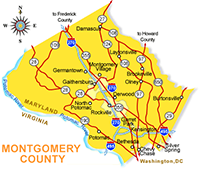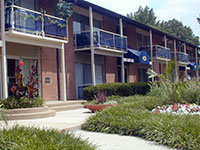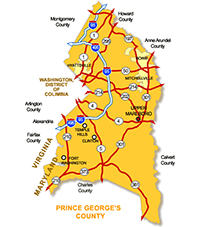Maryland At Issue - November 2018
State
MD General Election Underway
All state and county offices are up for grabs as early voting in Maryland’s general election continues through 8:00 p.m. on Thursday, Nov. 1. Hours of voting on Election Day, Tuesday, Nov. 6 are 7:00 a.m. through 8:00 p.m. Important races remain contested at the state and local level, so please vote. We will provide an analysis of election results following the election.
Lead Poisoning Low While Testing Increases
The 2017 Annual Surveillance Report of childhood blood lead found continued low levels of Maryland children poisoned by lead. There were 131,832 children under age 6 tested statewide in 2017, an increase of 11% over the prior year. Despite the increase in testing, only 388 children were identified with blood lead levels of over 10 micrograms per deciliter. Forty-nine of those cases were children who had recently immigrated to the United States and settled in Prince George’s County. See the report.
The increase in testing resulted from two factors: (1) Universal testing of children for blood lead levels at ages one and two; and (2) Increased use of Point of Care testing where the blood test and results are performed at the health care provider’s office. In past years children were tested primarily if they resided in zip codes containing high proportions of pre-1950 housing.
The report showed that for counties other than Baltimore City, 82% of the lead poisoning for children in pre-1950 rental housing remained attributable to lead paint or lead dust. However, for counties other than Baltimore City, only 2% of the lead poisoning for children in 1950 – 1977 rental housing was attributable to lead paint or lead dust. The predominate sources of lead poisoning for those children were exposure outside of the United States, cosmetics, spices or other sources. This finding again calls into question the large expense and regulatory burdens placed on 1950 – 1977 rental properties by state legislation regulating lead exposure.
Regional
WSSC Rates to Increase Under 5% for FY 20
Preliminary actions by the Montgomery and Prince George’s County Councils suggest that rate increases by WSSC for the budget year beginning July 1, 2019 will be held to 5 percent or less. The 5 percent cap has been endorsed by a joint staff working group of the two counties, and the Prince George’s County Council has passed a resolution approving the rate cap for FY 2020. Rates will ultimately be determined when the two County Councils approve WSSC’s FY 2020 budget next spring. As described in the August edition of MD - At Issue, the new, four-bracket WSSC rate structure will also become effective beginning July 1, 2019.
Montgomery County
Council Releases Evictions Report
 The Montgomery County Council’s Office of Legislative Oversight (OLO) has issued its long-awaited “Evictions in Montgomery County” report which includes a detailed analysis of the various steps involved in the eviction process, impact on the various stakeholders and county programs available to those facing evictions. The chart includes highlights of the various findings, discussion points and recommendations as statistical information on evictions in the county. For example, the chart shows the low number of evictions in relation to the total number of rental units (approximately 90,000) and residents in the county.
The Montgomery County Council’s Office of Legislative Oversight (OLO) has issued its long-awaited “Evictions in Montgomery County” report which includes a detailed analysis of the various steps involved in the eviction process, impact on the various stakeholders and county programs available to those facing evictions. The chart includes highlights of the various findings, discussion points and recommendations as statistical information on evictions in the county. For example, the chart shows the low number of evictions in relation to the total number of rental units (approximately 90,000) and residents in the county.
NEXT STEPS: On Nov. 15. OLO will brief the Council’s Public Safety Committee on its report. AOBA will send an Action Alert with additional information on the report and public briefing.
Council to Swear in New Council/County Executive on Dec. 3
 Efforts to move on controversial bills to increase the recordation tax on transactions over $1M, in addition to a solar/green roof mandate, have stalled as the Council nears the end of this council period. The Nov. 6 election will produce a new county executive and officially anoint the council candidate winners of the June primary as councilmembers-elect, and all will be sworn in on Dec. 3. The next day, the newly configured council will hold its first legislative session and elect officers. Current Vice-President Nancy Navarro will take the oath as council president and the councilmembers will select a new Vice President from among their peers. Also committee leadership positions and membership will be key.
Efforts to move on controversial bills to increase the recordation tax on transactions over $1M, in addition to a solar/green roof mandate, have stalled as the Council nears the end of this council period. The Nov. 6 election will produce a new county executive and officially anoint the council candidate winners of the June primary as councilmembers-elect, and all will be sworn in on Dec. 3. The next day, the newly configured council will hold its first legislative session and elect officers. Current Vice-President Nancy Navarro will take the oath as council president and the councilmembers will select a new Vice President from among their peers. Also committee leadership positions and membership will be key.
With four of the current nine councilmembers term-limited, we will see significant change to the committees. AOBA will provide a post-election update after the Nov. 6 election.
COMMITTEE MEMBERSHIP (*Term-limited member):
Planning, Housing, and Economic Development Committee: Issues including matters relating to rental housing in the county: *Nancy Floreen, (Chair), *George Leventhal, and Hans Riemer
Transportation, Infrastructure, Energy and Environment Committee: *Roger Berliner (Chair), *Nancy Floreen, and Tom Hucker.
Government Operations and Fiscal Policy Committee. Jurisdiction includes taxes, including recordation tax, and other fiscal matters: Nancy Navarro, Chair, Sidney Katz, and Hans Riemer.
Public Safety Committee. Jurisdiction includes towing. *Marc Elrich (Chair), Tom Hucker, and Sidney Katz.
Health and Human Services Committee. Jurisdiction includes minimum wage, earned sick and safe leave measures: *George Leventhal (Chair), *Roger Berliner, and Craig Rice.
Prince George's County
Comprehensive Housing Strategy Report Issued
 The Prince George’s County Department of Housing and Community Development recently released a draft Comprehensive Housing Strategy, intended to guide the County’s housing policy for the next decade. The 189-page Draft Report is the result of work over the last 18 months that included work by its consultants, Enterprise Partners, housing need surveys, focus group interviews, public meetings, and an Advisory Group on which AOBA participated.
The Prince George’s County Department of Housing and Community Development recently released a draft Comprehensive Housing Strategy, intended to guide the County’s housing policy for the next decade. The 189-page Draft Report is the result of work over the last 18 months that included work by its consultants, Enterprise Partners, housing need surveys, focus group interviews, public meetings, and an Advisory Group on which AOBA participated.
This is a very important document, since County elected officials and housing officials will use the report as a menu for future housing policy and legislation. The report identifies housing goals to (1) Support existing residents; (2) Attract new residents; and (3) Build on strategic investments and submarket conditions. There are 48 specific strategies and actions identified to achieve those goals, some benign, some possibly helpful.
However, there are about a dozen strategies and actions recommended - over AOBA’s objections - that have proven troublesome in neighboring jurisdictions, including:
- Establish a taskforce to develop a comprehensive tenants’ rights policy by evaluating the advantages and disadvantages of common tenant protections and resources, such as:
- Rent control
- Source of income protection
- Notice provisions (e.g., rent increase, lease termination, etc.)
- Relocation assistance
- Supplemental rental grants
- Establish a tenant-landlord office and liaison
- Adopt legislation to establish inclusionary housing requirements in appropriate submarkets
- Increase code enforcement resources to target more frequent inspections
- Extend ability to exercise right of first refusal to county partners (like mission-driven developers)
- Support tenant organizing and formation of tenant’s associations (as a way to assist with information-sharing and advocacy)
- Increase the County’s Housing Investment Trust Fund
- Establish tenants’ rights handbooks or tenants’ bill of rights
NEXT STEPS: AOBA staff will meet with Council members to discuss the report.
Council Adopts Legislation in Final Meeting
 The Prince George’s County Council adopted dozens of bills at a marathon final meeting of its term on Oct. 23. Many of these bills were described more fully in prior editions of At Issue - MD. Here are several of the bills of interest to AOBA members that were given final approval:
The Prince George’s County Council adopted dozens of bills at a marathon final meeting of its term on Oct. 23. Many of these bills were described more fully in prior editions of At Issue - MD. Here are several of the bills of interest to AOBA members that were given final approval:
- Zoning Rewrite - Four bills, CB-13-2018, CB-14-2018, CB-15-2018 and CB-65-2018, will rewrite the County zoning code, provide a new procedure for map amendments, establish new subdivision regulations, and adopt a new landscape manual.
- Short-term Rentals - CB-11-2018 will establish licensing procedures to allow property owners in the County to have short-term rentals of their primary residence, after paying an annual fee, and providing extensive documentation of compliance with building code, housing code and fire safety standards. Short-term rentals could not exceed 30 consecutive days, a total of 90 days per calendar year if the owner is not present, or 180 days per calendar year if the owner is present. The bill will be effective Oct. 1, 2019.
- Noise Control - CB-18-2018 will establish more strict and enforceable noise control standards in the County, with citations issued by a police or DPIE enforcement officer.
- Environmental Crimes - CB-54-2018 will establish an Environmental Crimes Unit in the County Department of the Environment to improve the enforcement of laws governing litter, illegal dumping, and other violations of the Anti-litter and Weed ordinance.
- Nonconforming Uses - CB-91-2018 will permit certain alterations, enlargements, or extensions to certified nonconforming buildings, structures and uses without the requirement for a special exception when the nonconformity is increased due to a conveyance of land to a governmental agency for public use.
